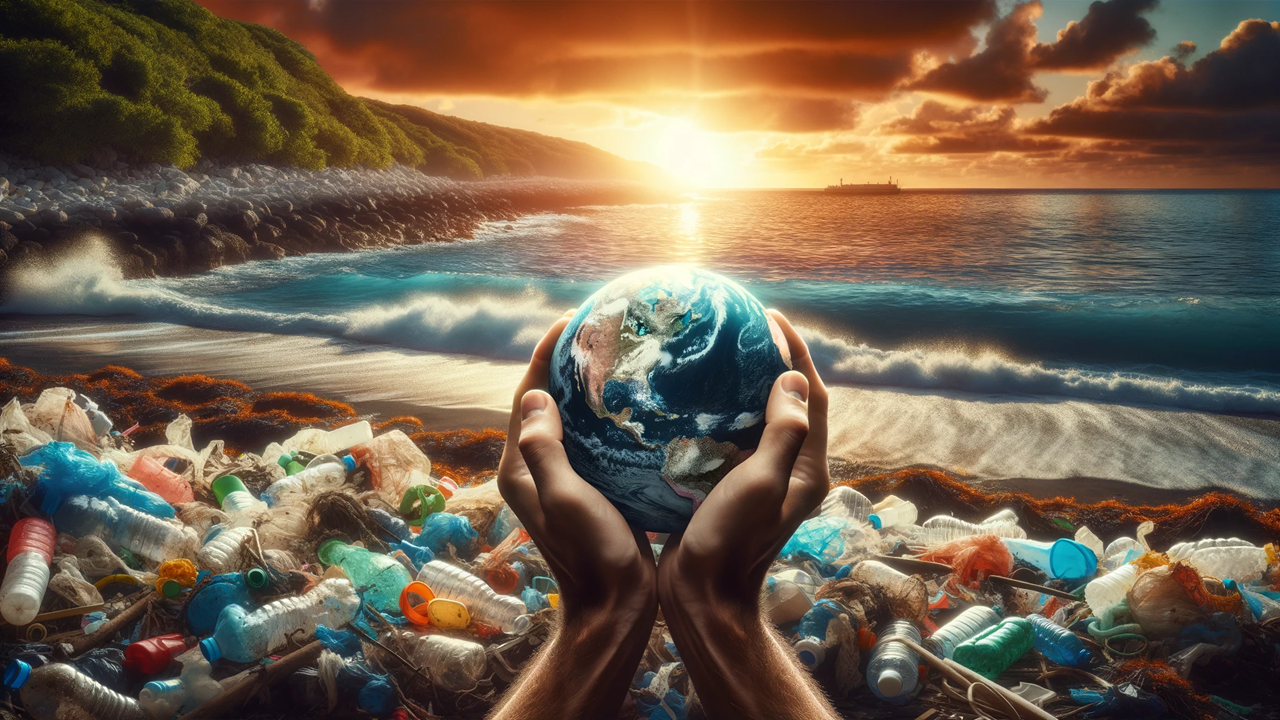IAEA's Antarctic Mission Uncovers Microplastic Pollution Threatening Global Ocean Health
Preliminary findings reveal widespread microplastics in Antarctic lakes and shorelines, highlighting the urgent need for global action against plastic pollution.

A pioneering mission by the International Atomic Energy Agency (IAEA) to Antarctica has revealed evidence of microplastic pollution in lakes, shorelines, and the ocean. These preliminary findings underscore the pervasive reach of plastic pollution, demonstrating that microplastics are threatening the health of the global ocean.
The IAEA’s first scientific research mission to Antarctica was initiated through the NUTEC Plastic initiative, launched by IAEA Director General Rafael Mariano Grossi and Argentinian President Javier Milei in January. With support from national authorities, IAEA experts collaborated with Argentine scientists aboard the icebreaker Irizar, conducting research between three Argentine Antarctic bases: Marambio, Esperanza, and Carlini. The team utilized onboard laboratories to prepare samples for analysis at the IAEA’s Marine Environment Laboratories in Monaco while sharing knowledge on nuclear technologies applicable in the Antarctic environment.
NUTEC Plastics Initiative
The Nuclear Technology for Controlling Plastic Pollution (NUTEC Plastics) initiative leverages nuclear-derived tools and technology to combat global plastic pollution on two fronts: addressing it at the source through new technologies for improving plastic upcycling and monitoring plastic pollution in the ocean, where most plastic waste accumulates. IAEA NUTEC experts collaborate with countries to tackle this growing threat, ensuring they have the knowledge and capacity to assess, monitor, and mitigate plastic pollution.
At a side event during the 68th IAEA General Conference, NUTEC Plastics experts shared preliminary findings on the development of protocols for analyzing microplastic particles.
“While microplastics have been studied for several years, we are now focusing on particles even smaller than those previously analyzed,” said IAEA Research Scientist Marc Metian. “As the techniques and protocols for such small microplastics have never been harmonized, testing and developing these methods can be time-consuming.” He noted that preparation and analysis for a single sample can take up to twenty days.
Key Findings and Future Actions
Preliminary results indicate that every analyzed sample contained microplastics, including Polytetrafluoroethylene (PTFE), polyvinyl chloride (PVC), polypropylene (PP), and polyethene terephthalate (PET). Once all samples collected have been analyzed, the findings will be published and shared with the Scientific Committee for Antarctic Research, an interdisciplinary body of the International Science Council that provides scientific advice to the Antarctic Treaty.
Argentine Foreign Minister Diana Mondino emphasized her country’s commitment to the Antarctic environment and international cooperation. “We believe that the NUTEC Portal will be a valuable and effective tool to support the IAEA's efforts in addressing shared challenges through peaceful applications of nuclear energy,” she stated.
Broader Implications and International Collaboration
Representatives from Australia, Malaysia, Peru, and the United States also spoke at the event. IAEA experts highlighted the progress made in both aspects of NUTEC, including an updated roadmap for enhancing regional and national capacity to use irradiation technology for recycling and a revamped NUTEC portal for Member States to access current information.
The Antarctic mission is part of the IAEA’s ongoing efforts to build laboratory capacity worldwide to generate information on plastic pollution levels and sources through marine microplastic monitoring. This initiative is a key step toward developing a global marine monitoring network to address the urgent issue of plastic pollution.
- READ MORE ON:
- IAEA
- Antarctica
- plastic pollution
- NUTEC Plastic
- Rafael Mariano Grossi
ALSO READ
Poland Advances Nuclear Power Plans: IAEA Head Presents Final Report on Infrastructure Review
IAEA, Japan, and Honduras Partner to Expand Cancer Treatment Under 'Rays of Hope' Initiative
IAEA Confirms Safe Tritium Levels in Latest Batch of Treated Water Discharged from Fukushima
Liberia Accelerates Accession to Nuclear Safety Treaties Following IAEA Intervention
India's Mobile Irradiators Gain IAEA Interest to Boost Food Shelf-life Internationally










